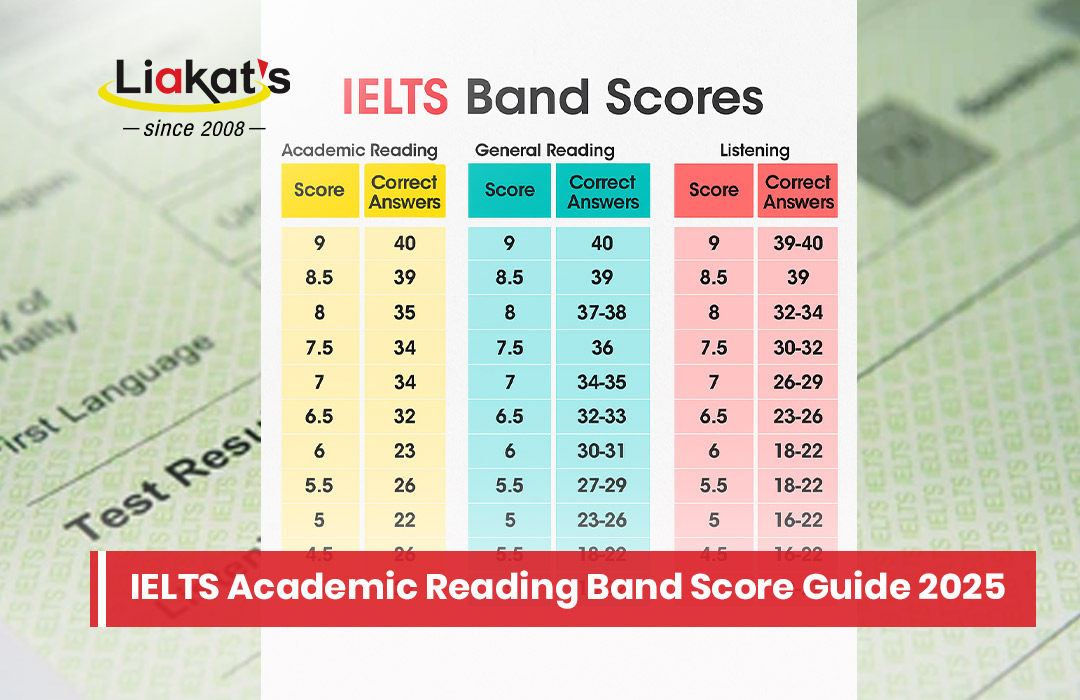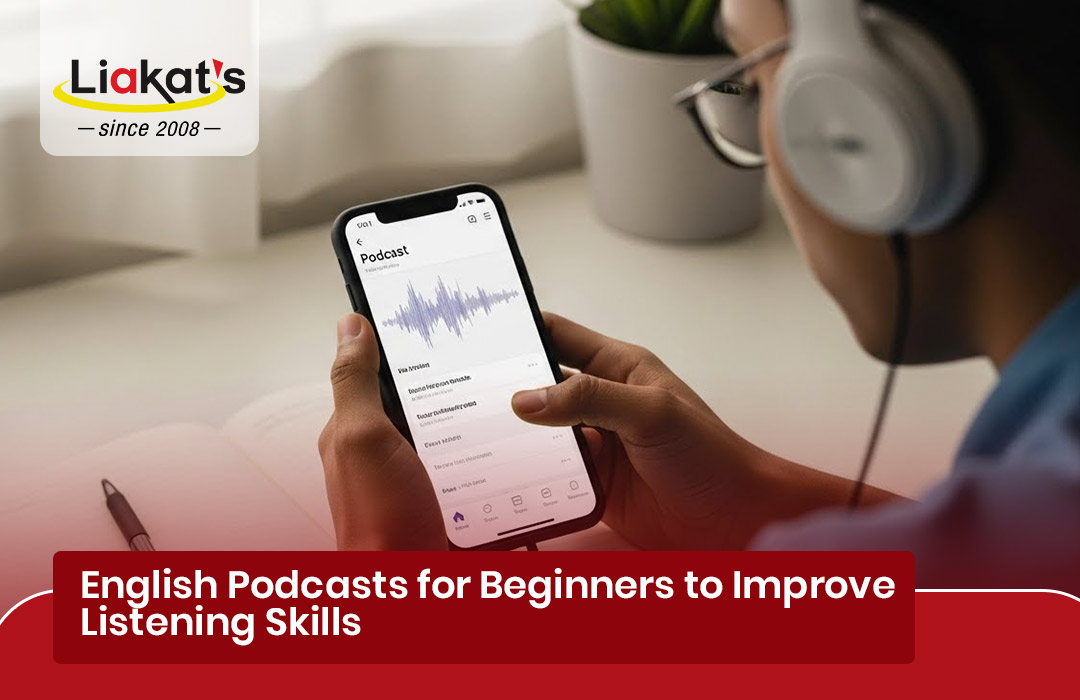What Is IELTS Reading Band Score and How It Works
The IELTS Reading Band Score shows how well you can read, understand, and analyze written English. It is part of the IELTS exam, which is trusted by universities, employers, and immigration authorities worldwide. The score is reported on a 0–9 scale. A higher band score means stronger reading skills, while a lower score signals the need for improvement.
Your IELTS Band Score is not just about reading quickly. It also measures how well you can find details, identify main ideas, understand opinions, and follow logical arguments. That’s why practicing under exam conditions is essential for boosting your performance.
IELTS Academic Reading Band Score Explained for 2025
In 2025, the IELTS Academic Reading test will continue to follow the same structure but with more focus on authentic academic materials. The test has 40 questions taken from passages similar to those you might find in university textbooks or research articles.
Each correct answer gives you one mark. These marks are then converted into a band score. For example, if you answer 30 questions correctly, your score will be around Band 7.0.
For students aiming to study abroad, most universities usually require a Band 6.5 to 7.5 in the Academic Reading section.
How IELTS Reading Band Score Is Calculated
The calculation is simple:
- You receive 1 mark for each correct answer.
- The total marks are converted into the IELTS Band Scale (0–9).
- No negative marking for wrong answers, so it’s always best to attempt all questions.
For example:
- 40 correct answers = Band 9.0
- 35 correct answers = Band 8
- 30 correct answers = Band 7.0
- 23 correct answers = Band 6.0
Knowing this calculation helps test-takers set realistic goals. If you want a Band 7.5, you need around 32–33 correct answers.
Difference Between Academic and General IELTS Reading Band Score
Although both versions test your reading skills, there are differences:
- Academic Reading uses passages from journals, books, and research-based content. It is more complex and requires strong analytical reading skills.
- General Reading includes texts from newspapers, advertisements, and everyday documents. It is simpler and focuses on practical understanding.
The scoring also differs. For the same number of correct answers, a candidate may get a higher band score in the General module compared to the Academic one.
IELTS Reading Band Score Chart: Correct Answers vs Band
Here is an approximate Academic IELTS Reading band score chart:
Correct Answers | Band Score |
39–40 | 9.0 |
37–38 | 8.5 |
35–36 | 8.0 |
32–34 | 7.5 |
30–31 | 7.0 |
27–29 | 6.5 |
23–26 | 6.0 |
19–22 | 5.5 |
15–18 | 5.0 |
This chart helps you estimate how many correct answers you need to achieve your target score.
Tips to Improve Your IELTS Academic Reading Band Score
- Practice Skimming and Scanning – Quickly identify main ideas and locate specific information.
- Time Management – You have only 60 minutes for 40 questions, so avoid spending too long on one passage.
- Understand Question Types – Familiarize yourself with True/False/Not Given, Matching Headings, and Summary Completion.
- Expand Academic Vocabulary – A strong vocabulary makes complex texts easier to understand.
- Do Mock Tests Regularly – Practice under real exam conditions to build confidence.
Common Mistakes That Lower IELTS Reading Band Score
- Spending too much time on difficult questions.
- Misreading the instructions
- Ignoring keywords and synonyms.
- Leaving answers blank instead of making an educated guess.
- Not practicing enough with real IELTS test papers.
Avoiding these mistakes can make a big difference in your final band score.
How to Check and Understand Your IELTS Reading Band Score
After the exam, you will receive a Test Report Form (TRF) showing your Reading Band Score along with scores for Listening, Writing, and Speaking.
If your score is lower than expected, you can:
- Request an Enquiry on Results (EOR) to have your test rechecked.
- Retake the test after more preparation.
Universities and organizations usually accept scores that are less than two years old, so always check the validity requirements.
Conclusion
The IELTS Academic Reading Band Score is crucial for students planning to study abroad in 2025. Understanding how it works, how it is calculated, and how to improve your score can increase your chances of success. With proper preparation, smart strategies, and awareness of common mistakes, you can achieve your target band score and open doors to international opportunities.
Frequently Asked Questions
How many questions are in IELTS Academic Reading?
There are 40 questions, and each correct answer adds one mark.
Is Academic Reading Harder than General Reading?
Yes, Academic Reading is more complex and uses academic texts, while General Reading uses everyday materials.
How many correct answers are needed for Band 7?
You need around 30–31 correct answers to achieve Band 7.0 in Academic Reading.
Can wrong answers lower my score?
No, there is no negative marking. Always attempt all questions.
How long is the IELTS Reading Band Score valid?
Your score is valid for 2 years from the test date.
Can I request a recheck if I am not satisfied with my score?
Yes, you can apply for an Enquiry on Results (EOR) within six weeks of your test date.





